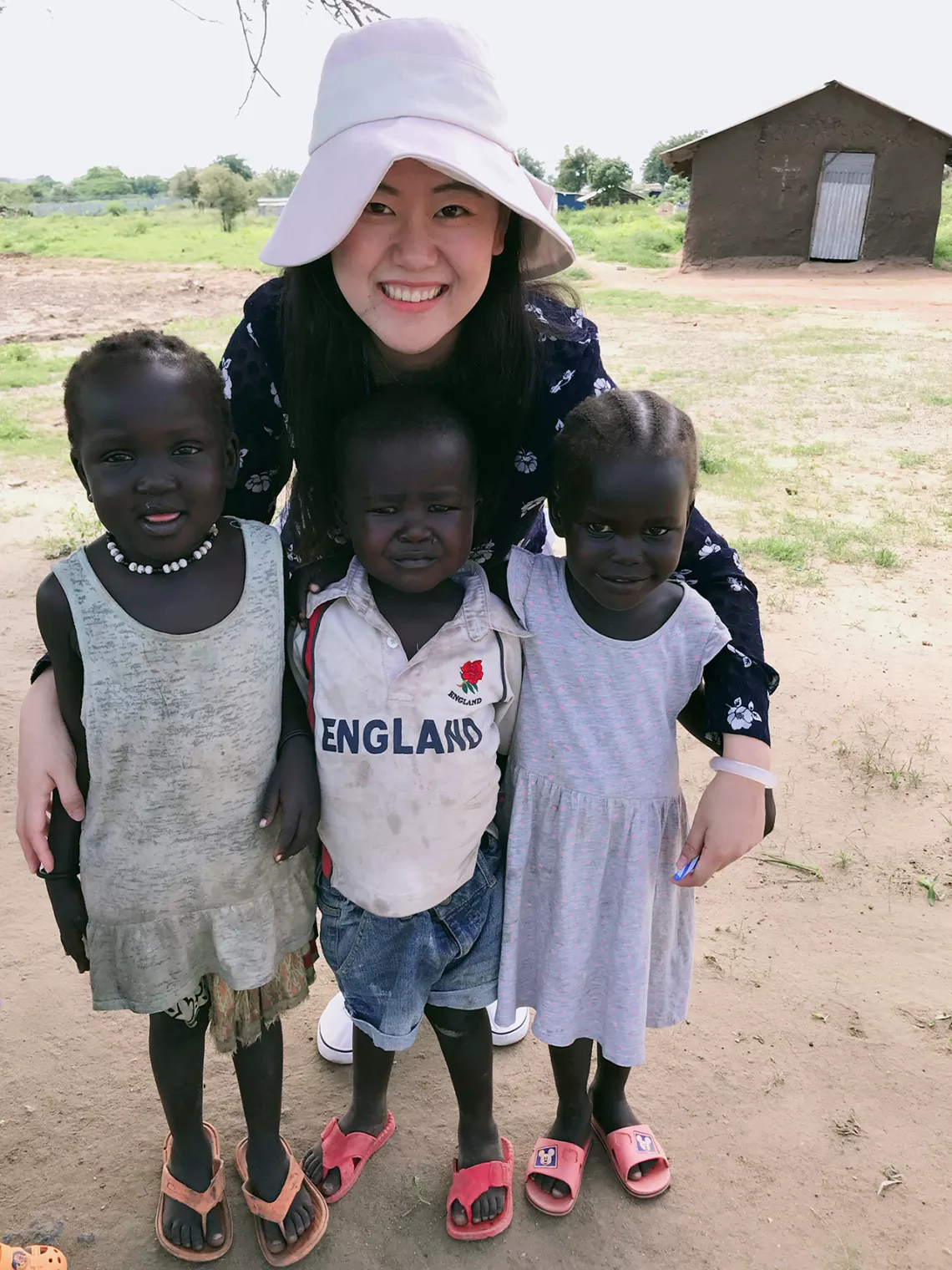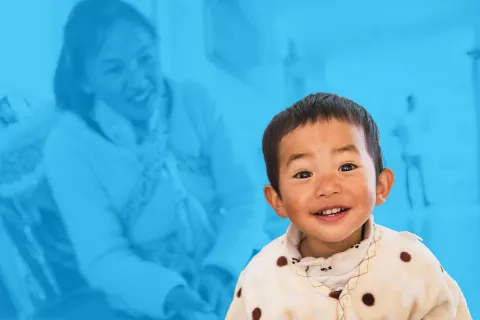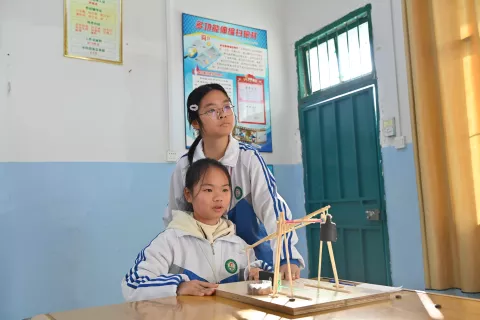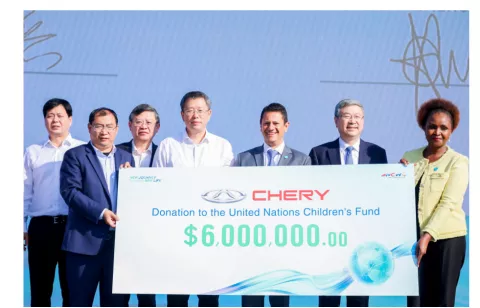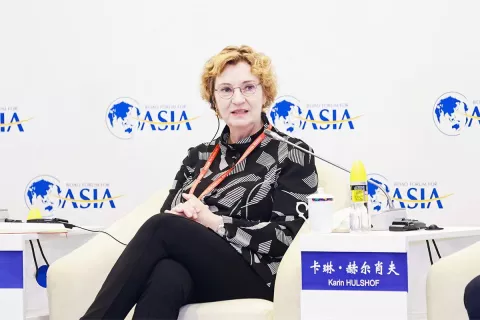Field Work: A UNICEF Education Officer Working in South Sudan
Interview with a UNICEF Education Officer in South Sudan
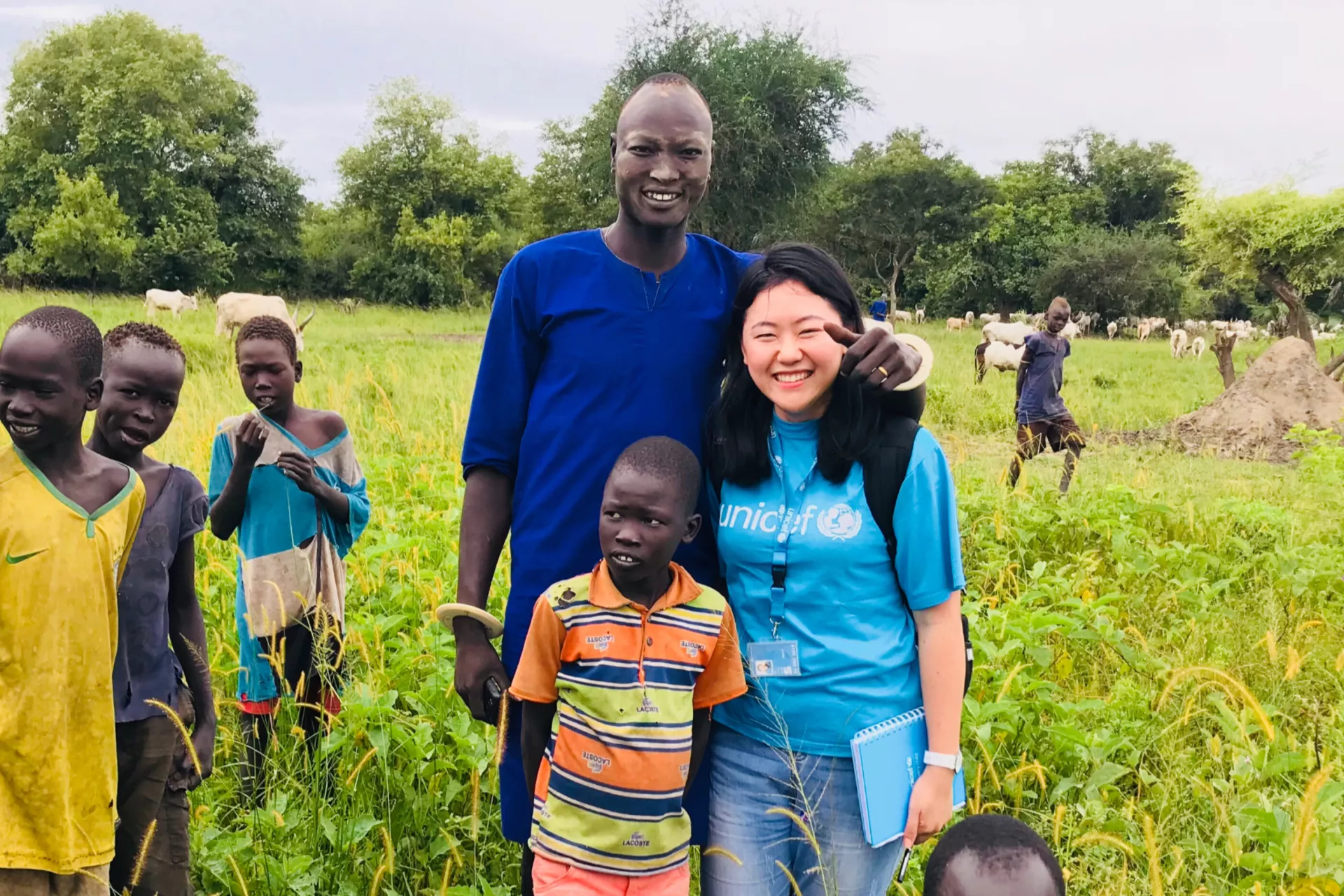
- Available in:
- 中文
- English
Yiming Qu is an Education Officer working in UNICEF South Sudan. She recently visited the UNICEF China Office to share her experiences of working in Africa and why working in the field is an absolute must for development professionals.
How did you get your start working for UNICEF?
I first started working for UNICEF in 2014 as a Programme Officer for the UNICEF Headquarters in New York, which was a great experience for me because I got to understand how policies and procedures are formulated and how they can be conveyed to the field offices. But I’d always wanted to work in the field and I wanted to experience the diverse contexts of both the development and humanitarian response. The reason behind this was due to my academic training in international economic and political development and conflict resolution. I believe the “field” is where the rubber meets the road, so to speak, and is closer to the heart and mind of the organization.
In 2015, I had the opportunity to go on a 3-month assignment in Kenya with the Regional Office for Eastern and Southern Africa. This was the first chance I had to work in Africa and I really appreciated the assignment because I got to work with 21 country offices in the region and provided technical support to country office staff on daily basis. In 2016, I was able to move to the UNICEF Sierra Leone office where I worked as a Budget Manager and had the chance to work with all these inspiring people, including Alison[1]. You had all of these really smart, really passionate people working with you in the field and it was such a great atmosphere to be working in. I knew then that I wanted to continue working in the field in Africa. My wish came true because after about a year of working in Sierra Leone, I moved to my present office in South Sudan under the function of Monitoring and Evaluation, Information and Knowledge Management for Education.
[1] Alison Jenkins is UNICEF China’s Senior Adviser for the South-South Cooperation section.
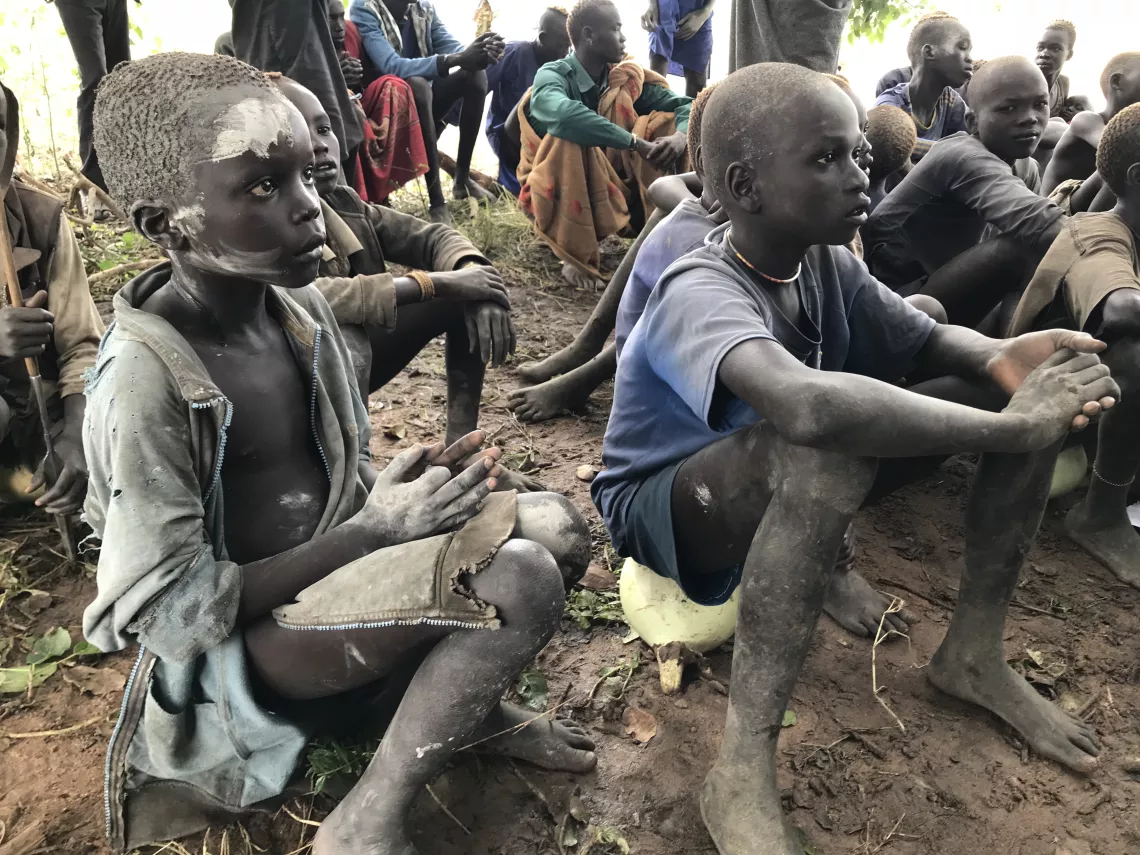
Can you share with us at least one memorable experience working in the field?
I remember one time we went to a cattle camp in South Sudan to reach this nomadic tribe of people. You see in South Sudan, cattle are very important to people. It’s a source of income and also a status symbol, it’s something that they use as dowry in a wedding. Over 60 per cent of the population in Sudan lives in pastoralist communities and I remember to get to the pastoralist community, we had to travel with a security team and at one point, they stopped the vehicles and told us we had to walk the rest of the way to get to the tribe. The walk took us one hour and we had to wade through this swamp and go through blades of grass that were so tall and thick, you couldn’t even see the rest of the people in the group. We had to shout out occasionally, “Are you there?”; “I’m here!” just to make sure that we weren’t getting lost.
Reaching the cattle camp was an eye-opening experience for me. It made me realize that when we think of interventions for people, we really need to design for the needs of the targeted population. So, for example, for this particular group of people we had to think of interventions that would work for their nomadic lifestyle. Something as simple as, say, a blackboard for learning would not be useful if it weren’t something that they could easily bring with them when they moved. And also, when we think of getting teachers for the children, it’s very difficult to send someone to come in regularly to teach simply because just getting to where these people are located takes time and is difficult. So the best scenario would be to find people living within the community, people with a basic level of education and knowledge and who can be trained to take on the role of teachers.
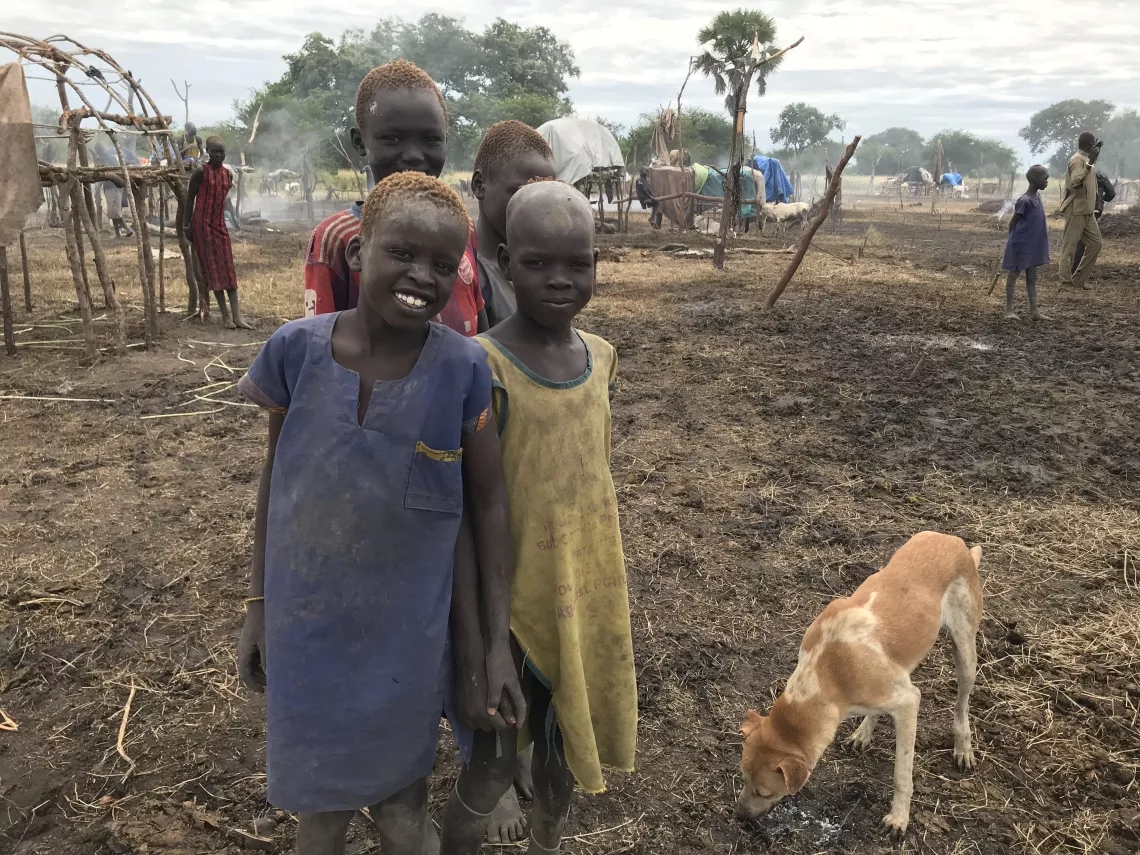
What is your impression of working in Africa as a Chinese international staff at UNICEF?
There are many similarities between China and many African countries; they’re both developing economies; they both have a large number of young people in the population; they both have this aspiration to peace and prosperity. But Africa as a region is very broad and within the continent itself, you can see a lot of diversity. Among the countries there are different levels of economic development and also different levels of stability so it’s important to keep that in mind.
Throughout my experience of working in Africa, the people I’ve met with have been very friendly. If they see me, they’ll greet me with “Hi, China”, and sometimes even in Chinese. There aren’t many Chinese nationals working in Africa; in my office in UNICEF South Sudan, I am the only one but I do think that is slowly changing, and Africans are getting more used to seeing Chinese people in the field because of the increasing number of projects under the Belt and Road Initiative.
Do you have any suggestions to young people for participating in international organizations, like UNICEF?
I’d like to share the advice that a former professor of my last class in graduate school once gave me. He used to be the Undersecretary-General of Peacekeeping Operations and he said to me, “Pick a good boss” and “Go to the field.” Regarding the first piece of advice, this is important because everyone needs a role model, someone they can look up to. The “boss” doesn’t have to be an immediate supervisor; this can be anyone in your life; a mentor. I think that’s important because you always need someone to inspire you and guide you. And then on the second piece of advice, I truly believe that it’s important for people, especially young people, to experience working in the field because this is where action happens. The field is where you can learn about what’s really going on and where you have the most potential to contribute.
